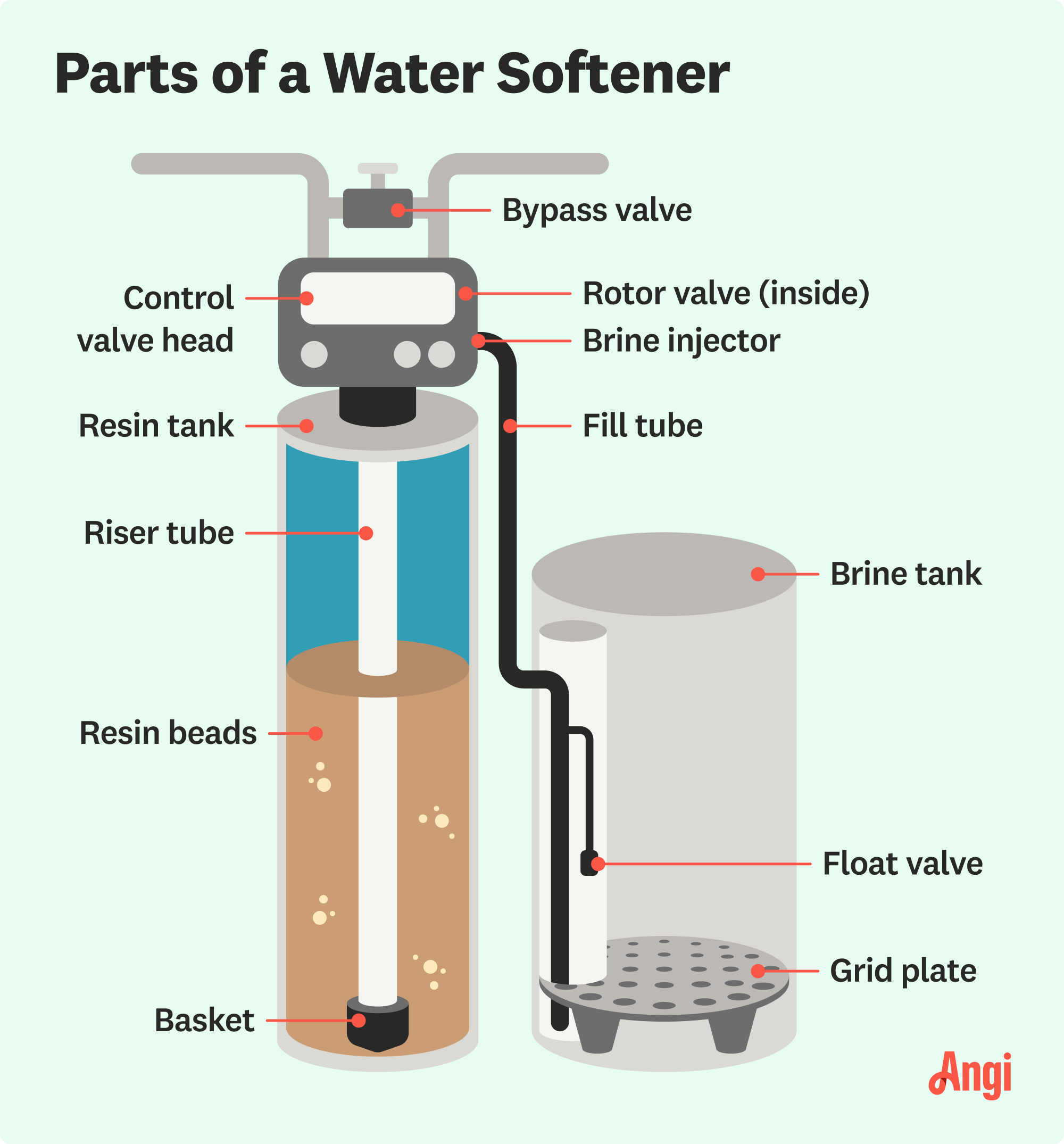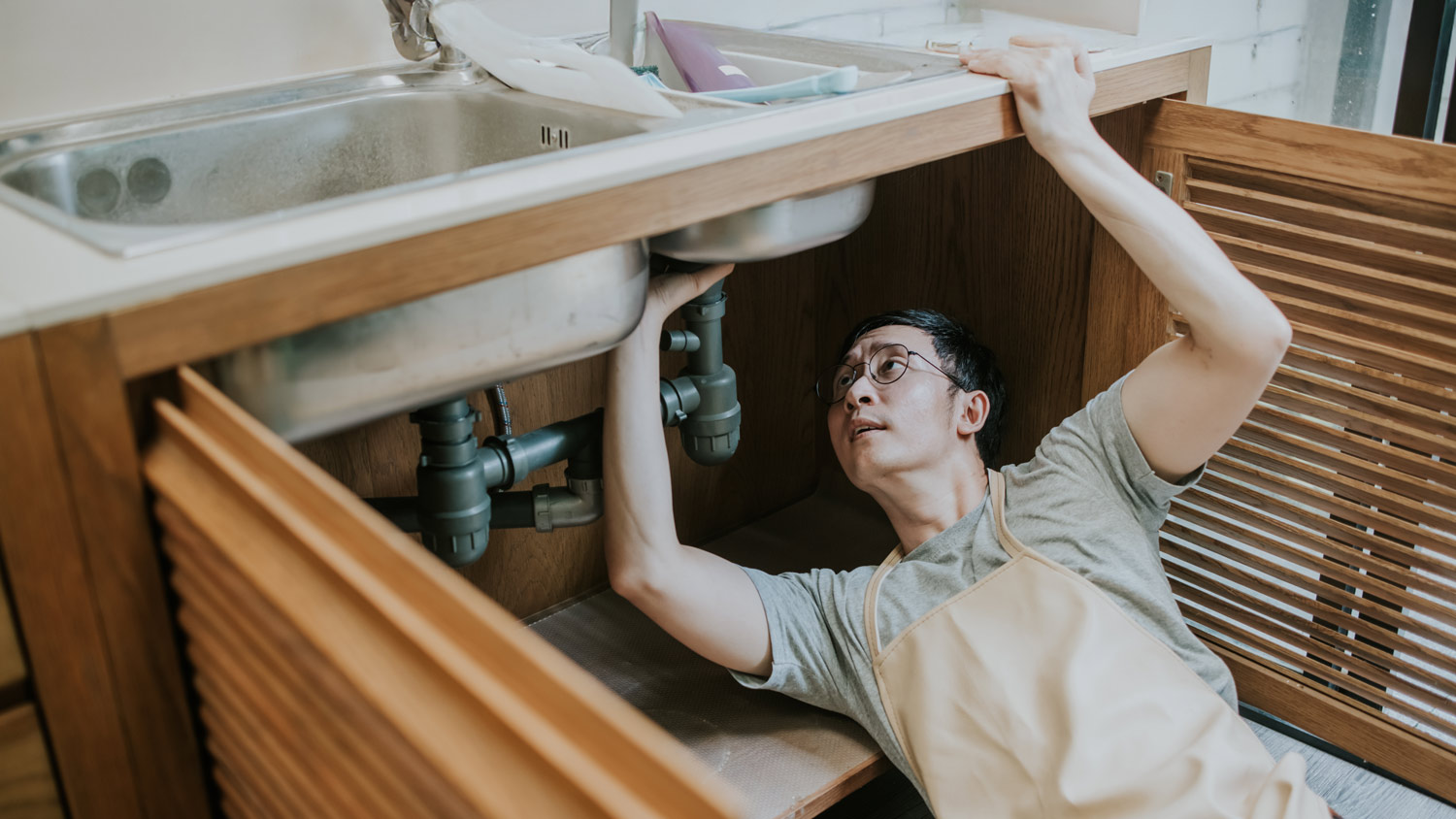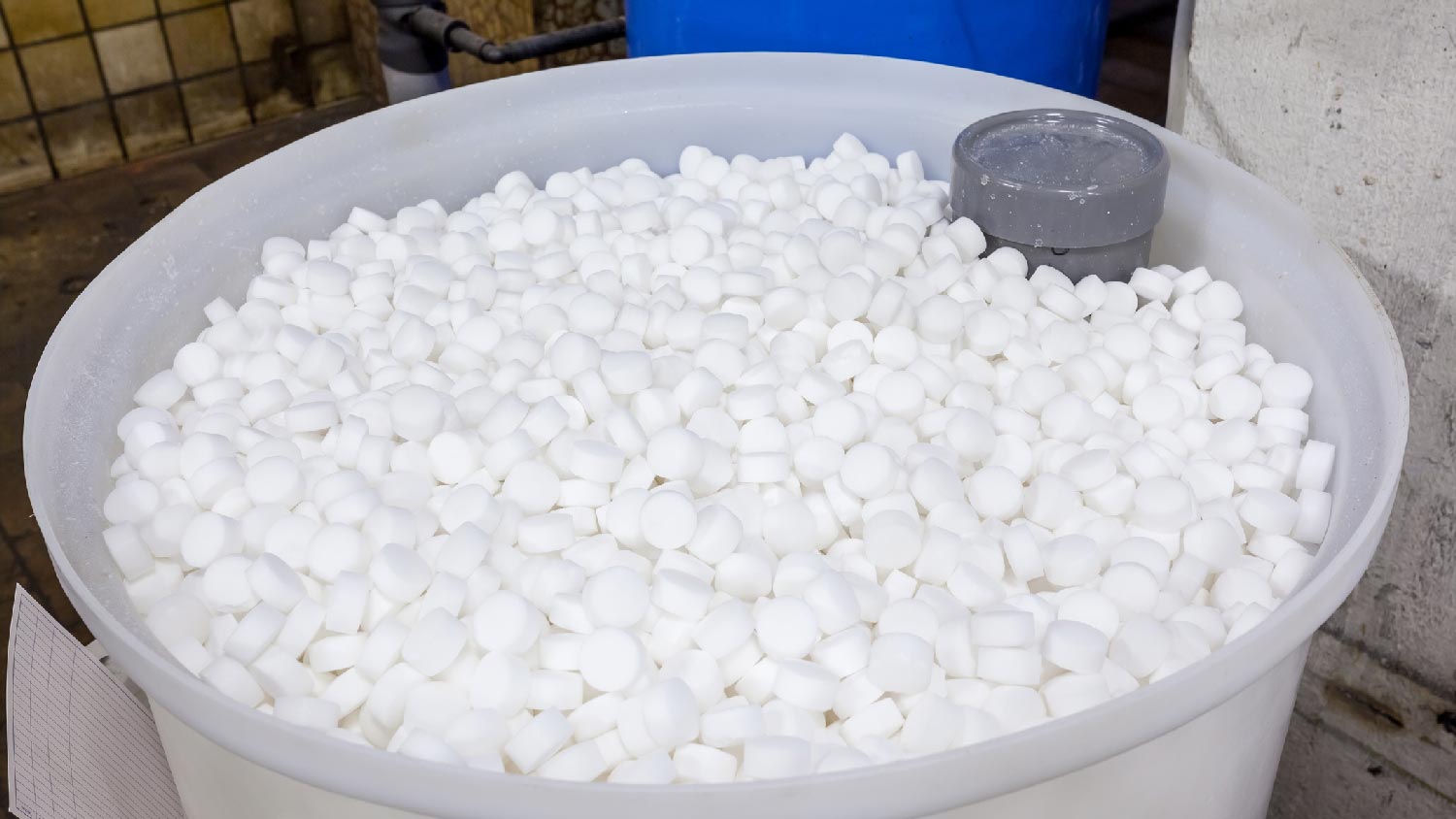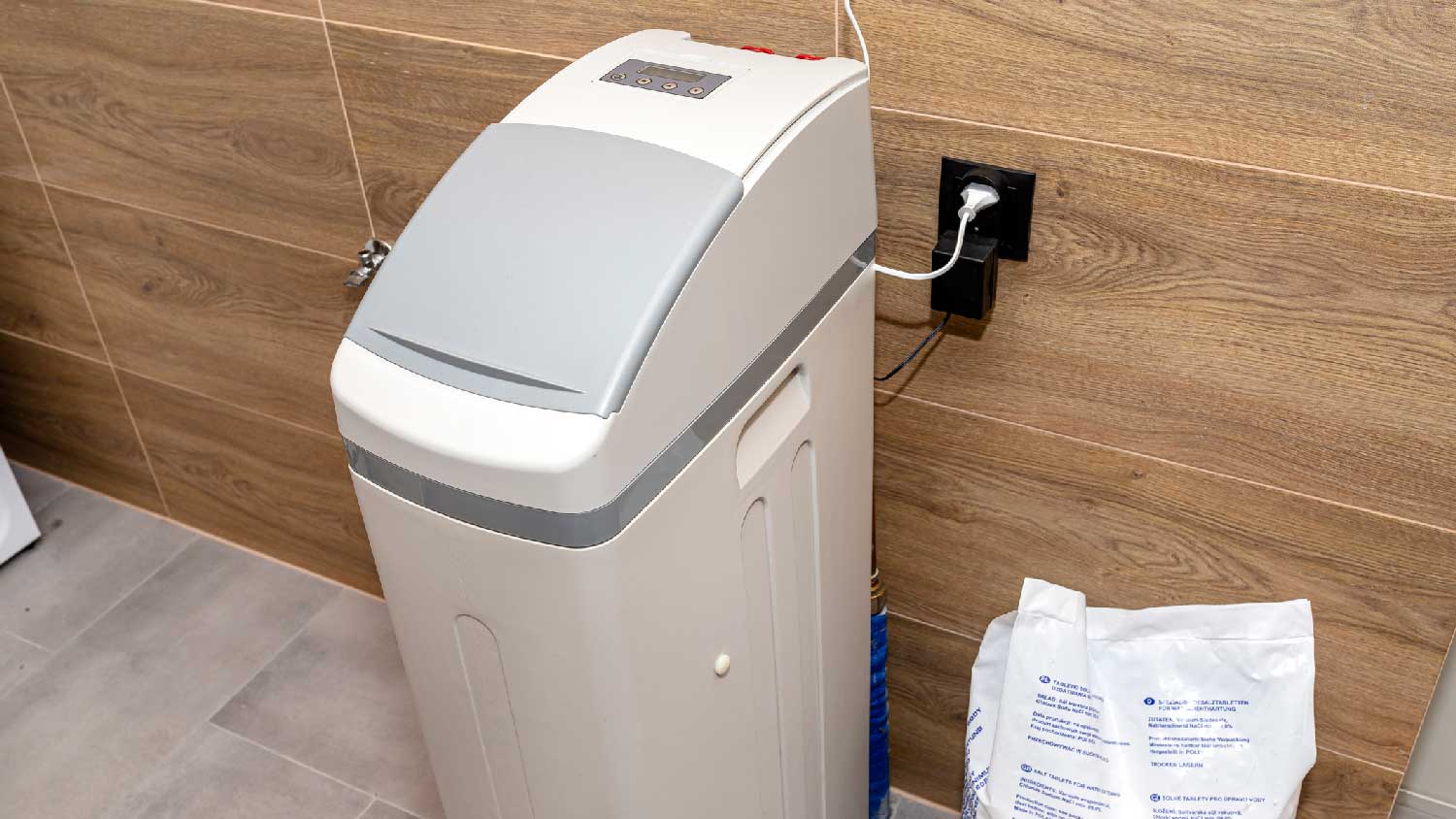Are Water Softeners Worth It?
It’s tough to put a price on better hair, but we tried


Home Value Rating: 2/5
Water softeners provide an average ROI between 20% and 50%.
The benefits come primarily from cost savings in terms of appliance efficiency and longevity.
Your location, system type, water hardness, and local labor rates will impact your ROI.
Are you tired of dull, weighted-down hair, limescale buildup, broken or underperforming appliances, and laundry that never feels quite clean? Water softeners can solve these issues and more, making them an investment worth considering. However, various factors such as water hardness, household size, and local labor rates will influence the total return on investment (ROI). In general, the ROI of installing a water softener ranges between 20% and 50%, mainly in the form of increased appliance efficiency and longevity. Any boost in your home’s resale value is likely to be minimal. Let’s explore whether a water softener is worth it by examining costs, savings, and factors that affect ROI.
The main difference between soft water and hard water is the mineral content. Hard water has higher levels of calcium and magnesium, whereas soft water has undergone a process to remove these minerals.
Average Water Softener Value
The ROI of installing a water softener ranges between 20% and 50% over a period of 3 to 5 years, according to estimates from energy efficiency studies and consumer reports. These figures vary based on water hardness, household size, and how much energy and detergent you use.
We advise against buying a water softener because you think it will increase your home’s resale value. The ROI of a water softener comes almost entirely from the resulting cost savings; there isn’t good data to suggest it will directly increase your home’s price.
For context, a study by the Water Quality Association found that:
Hard water caused up to a 24% loss of efficiency in traditional water heaters.
Showerheads with hard water lost 75% of their flow rate in less than 18 months.
Soft water allowed testers to wash clothes with less detergent and colder water, resulting in cost savings.
Dishwashers required 70% less detergent with soft water than hard.

Factors That Influence Water Softener Value
Several factors about your home and water greatly influence whether a water softener is worth it.
Water Hardness
Hard water refers to water with mineral levels above certain thresholds. There are plenty of telltale signs you have hard water, such as water spots on your dishes, mineral buildup in sinks and toilets, stiff or faded laundry, plumbing problems, appliance breakdowns, dry hair, and itchy skin. However, a water hardness test can help you know exactly how hard your water is.
If you have magnesium and calcium levels above 120 parts per million (PPM) or 7 grains per gallon (GPG), you’re one of the more than 80% of U.S. households with hard water. Severe hard water is widespread in parts of Arizona, Texas, Florida, and the Midwest. In these areas, you’re likely to save more—and buyers may be likely to pay more—than in areas with naturally soft water.
Household Size
The number of people who live in your house, along with its size, will impact the size and cost of your water softener and your potential savings. Larger households that use more water will need a larger unit but will likely see a more substantial return on their investment.
Appliance Lifespan and Maintenance
Water softeners can extend the lifespan of your appliances and reduce their need for maintenance by preventing scale buildup in pipes and heating elements. For example, the tankless water heaters in the Water Quality Association study failed after 1.6 years of use because mineral deposits blocked the plumbing.
Water Softener Maintenance and Repair Costs
The cost to maintain your water softener depends on the type of softener you have. Salt-based softener maintenance primarily consists of refilling the salt tank and ensuring all components work correctly. Salt-free water softeners require less maintenance but have a higher upfront cost. Water softener repair costs an average of $550.
Water Softener Type
The type of water softener you install affects both its effectiveness and contribution to your home's value. Prices vary greatly depending on the model you choose:
| Type of Water Softener | Average Cost |
|---|---|
| Ion exchange | $1,500 |
| Dual-tank | $6,000 |
| Salt-free | $800–$4,000 |
| Magnetic | $200–$400 |
DIY Vs. Hiring a Pro
While it might be tempting to install it yourself, a seasoned pro should install your water softener, whether a licensed plumber near you or a local water softener technician. It’s a complex process with plenty of things that could go wrong (AKA you flood your basement) if not done correctly. Your pro will help ensure it’s in the optimal location and everything is hooked up the right way.
How to Estimate the Added Value of a Water Softener
Because the potential ROI of a water softener is highly individual, here are a few steps you can take to help estimate the added value:
Perform a water hardness test. Knowing your water’s hardness level will help you determine whether your home will benefit from a water softener and, if so, to what extent. The harder your water, the more benefits you’ll reap.
Consider your water usage. Are you a family of six who does multiple loads of laundry and runs the dishwasher daily, or are you an empty nester who tries to conserve water whenever possible? Heavy water users with higher water hardness levels will likely see the biggest savings.
Factor in appliance repair costs. Does the water heater repair pro know you by name? If you frequently pay pros to fix appliances that use hard water, you can likely reduce the number of house calls with a water softener.
Consider how long you want to stay in your home. If you’re considering selling soon, a water softener may not make sense since its impact on resale value is negligible.
Cost to Install a Water Softener
The cost of a new water softener, including installation, ranges from $200 to $6,000 on average. Most homeowners pay around $1,500, but your total cost will depend on the type and capacity of the unit, the complexity of the installation, and local labor rates.
Are Water Softeners Worth It?
A water softener is a valuable addition if you have hard water, frequent plumbing issues, use excess detergent, or want to extend the life of your household appliances. However, if your water quality is already good, you don’t use significant amounts of water, or you plan on moving in the near future, the investment may not yield much of a financial return.
How Angi Gets Its ROI Data
Home is the most important place on earth, which is why Angi has helped more than 150 million homeowners transform their houses into homes they adore. To help homeowners maximize the value of their investments, we gather ROI data from reputable sources, including industry reports, real estate studies, and interviews with market experts. We calculate the average resale value for projects by multiplying the ROI against the project’s average cost according to our cost data, which is sourced from thousands of real Angi customers.
Want to help us improve our data? Send us a recent project quote or home appraisal value to costquotes@angi.com. Quotes and personal information will not be shared publicly.
Frequently Asked Questions
If you’re trying to decide between water softener rental versus buying, renting a water softener tends to save you upfront but costs more over time. Owning a water softener is the best bet for homeowners who don’t plan on moving.
Water softeners last 10 to 25 years on average, but lifespan varies based on the type of water softener, its capacity, how much water you use, and how well you stick to routine maintenance.
Water softener versus water filter: which one should you choose? If you want to remove minerals, opt for a softener. If you want to remove a wide range of contaminants, go for a filter. Or, you can install both.
















